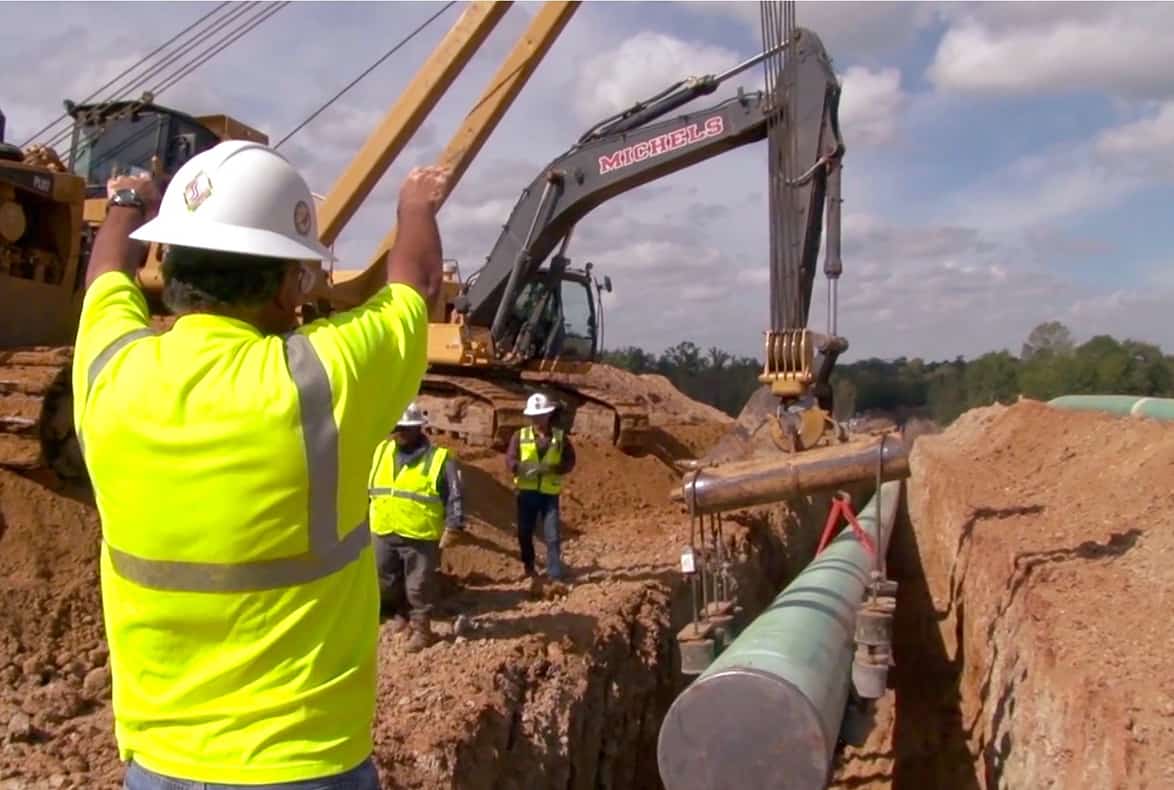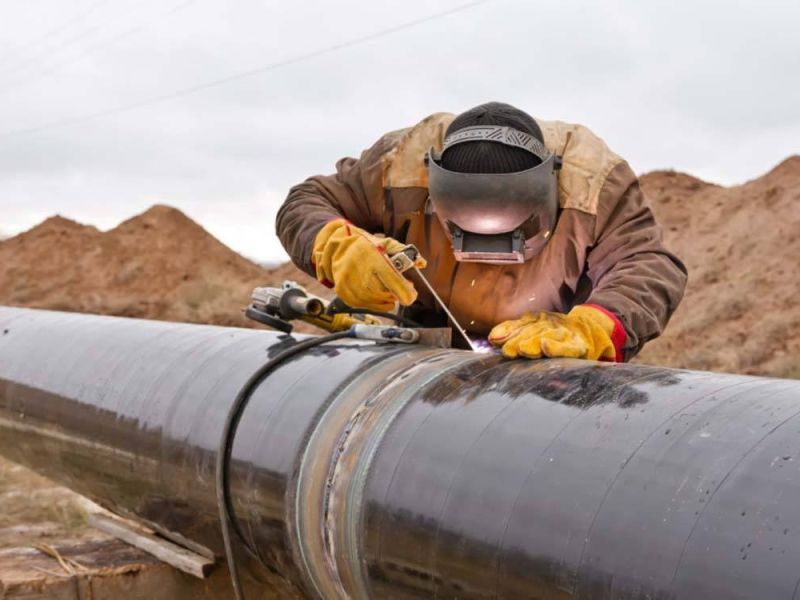A Comprehensive Overview to Recognizing Pipes and Their Role in Construction
Pipelines are crucial components in construction, offering important features in gas, waste, and water monitoring. Their choice and application can significantly influence a structure's effectiveness and security. Various products, such as PVC, copper, and PEX, provide distinctive advantages suited to particular demands (Creek Pipe Company LLC). Recognizing these elements is key for any kind of building and construction task. As one explores the complexities of pipelines, the implications for conformity and public health and wellness ended up being significantly evident
The Relevance of Pipeline in Construction
Pipelines function as crucial conduits in construction, promoting the activity of water, gas, and waste throughout structures and infrastructure. Their duty prolongs beyond mere transportation; they are essential for making sure the capability and safety of industrial and property atmospheres. Properly set up pipelines add to the effective distribution of sources, making it possible for daily activities such as home heating, food preparation, and showering. Pipes play a critical function in waste management, guaranteeing that sewage and wastewater are effectively gotten rid of from living spaces.The relevance of pipelines is likewise reflected in their impact on public wellness. Insufficient or malfunctioning piping systems can lead to contamination and harmful problems, making high quality products and setup methods crucial. Additionally, pipes have to conform with various structure codes and regulations, which are designed to shield both passengers and the environment. Subsequently, the significance of pipes in building and construction includes both useful functionality and essential health and wellness considerations.
Types of Pipes Utilized in Structure Tasks
Various kinds of pipes play a significant role in building projects, each designed to fulfill specific requirements and applications. Amongst the most frequently made use of pipe types are PVC, which is immune and light-weight to deterioration, making it optimal for water drainage and vent systems. CPVC pipelines, comparable to PVC, can withstand higher temperature levels, frequently used in warm water systems. Copper pipelines are recognized for their resilience and reliability, regularly utilized in pipes and heating applications. Galvanized steel pipes, while less common today, were once a standard for water lines due to their stamina. Furthermore, PEX (cross-linked polyethylene) pipelines are obtaining appeal for property pipes due to their adaptability and resistance to scaling and chlorine. Cast iron pipes are favored for their sound-dampening properties, frequently made use of in waste and dirt systems. Each pipeline kind serves distinct features, guaranteeing effective operation in building projects.
Usual Materials for Pipes and Their Residence
In building and construction, the option of pipeline products is crucial for ensuring durability and performance. Steel pipes supply strength and resistance to high pressures, while plastic pipelines offer lightweight and corrosion-resistant choices. Composite pipes integrate the benefits of both products, making them functional choices for different applications.
Steel Pipe Options
Metal pipes are indispensable components in building, offering a series of alternatives that accommodate environmental conditions and various applications. The most typical products include steel, copper, and cast iron. Steel pipes are known for their strength and toughness, making them ideal for high-pressure applications. Copper pipes are favored for their corrosion resistance and antimicrobial residential properties, often utilized in plumbing systems. Cast iron pipelines offer exceptional audio insulation and are ideal for waste and drainage systems. Each metal kind has distinct advantages; for instance, galvanized steel can resist corrosion, while stainless steel provides premium deterioration resistance. Choosing the proper metal pipeline relies on aspects such as price, environmental direct exposure, and the certain needs of the building and construction task.

Plastic Pipeline Advantages
Plastic pipelines have actually acquired appeal in building because of their light-weight nature and flexibility. These pipes, made from materials such as PVC, CPVC, and PE, deal outstanding resistance to rust and chemical damage, making them suitable for different applications. Their simplicity of setup further improves their charm, as they can be cut and joined without unique tools. Furthermore, plastic pipes are generally much more economical compared to steel options, adding to reduced general task costs. Their smooth indoor surface areas reduce rubbing and improve circulation prices, while insulation residential properties aid preserve temperature level control in plumbing systems - Creek Pipe Midland. With a variety of setups and sizes available, plastic pipelines effectively fulfill the diverse demands of contemporary building projects
Compound Pipeline Characteristics
Composite pipes incorporate various materials to take advantage of their specific toughness, causing enhanced efficiency and longevity. Normally, these pipelines consist of layers that might consist of ceramics, metals, and plastics, each contributing one-of-a-kind properties. For instance, the internal layer may be made from a corrosion-resistant material, while the outer layer offers toughness and impact resistance. This combination permits composite pipes to stand up to severe temperatures and pressures, making them appropriate for a vast range of applications, including water supply and industrial processes. In addition, composite pipes are typically lighter than standard materials, facilitating much easier handling and installment. Their adaptability and adaptability to various atmospheres make them a preferred selection in modern-day building and construction jobs, guaranteeing long life and effectiveness in fluid transport systems.
Applications of Pipes in Pipes Solutions

Electric Conduits: The Function of Piping in Wiring
In modern construction, electrical conduits play an essential function in making certain the efficient and safe directing of electric wiring throughout buildings. These pipelines supply a protective pathway for electric wires, guarding them from physical damages and ecological factors. Different products, such as PVC, steel, and adaptable conduits, are utilized depending upon the specific requirements of the installation.Furthermore, channels assist in arranging electrical wiring systems, reducing the risk of electric threats like short circuits or fires. They additionally assist in easier upkeep and upgrades, as cords can be accessed and changed without substantial disruption to the structure.Proper setup of electric channels is crucial for conformity with structure codes and safety laws. This organized method not only improves the durability of the electrical system however also adds to the total safety and security and functionality of the building, making electrical channels important in modern-day building methods.
Selecting the Right Pipeline for Your Project
Just how can one guarantee the ideal pipeline option for a building and construction job? The option process begins with recognizing the details needs of the project, consisting of the kind of fluids being carried, stress scores, and environmental conditions. Creek Pipe Company Product options, such as PVC, copper, and steel, ought to be examined based upon durability, deterioration resistance, and thermal properties.Next, one must think about the pipe's size and circulation capacity to establish effective operation. Regulatory criteria and codes must likewise be abided by, as they determine the appropriate materials and techniques for details applications. Consulting with specialists and making use of comprehensive resources can additionally help in making notified decisions.Finally, examining the cost-effectiveness of numerous options is important, balancing first costs with long-term upkeep and replacement prices - Creek Pipe Company. By carefully examining these aspects, one can with confidence pick the most suitable pipe for their building task, assuring both capability and conformity

Maintenance and Assessment of Water Lines in Building
Appropriate selection of pipelines establishes the foundation for their long-lasting efficiency, making upkeep and inspection vital parts in building and construction. Normal upkeep guarantees that any type of potential concerns, such as leakages, deterioration, or blockages, are determined and addressed quickly, decreasing expensive fixings and task hold-ups. Set up examinations, including aesthetic analyses and stress examinations, play an essential function in assessing the honesty of pipe systems.Additionally, keeping track of environmental factors, such as temperature level variations and dirt conditions, can assist prepare for damage. Making use of innovative technologies, such as CCTV for indoor examinations, can boost the efficiency of maintenance efforts. It is essential to document evaluation findings and upkeep activities to develop a detailed background of the pipe systems. By focusing on upkeep and evaluation, building and construction specialists can expand the lifespan of their piping systems, guaranteeing they operate efficiently and dependably throughout the task's period.
Regularly Asked Questions
How Do Pipelines Impact Power Efficiency in Buildings?
Pipes greatly influence energy efficiency in structures by regulating heating and cooling systems. Correct insulation and materials reduce energy loss, while effective pipes styles decrease water usage, ultimately resulting in lower energy intake and operational expenses.
What Rules Govern Pipe Installment in Construction?
Rules governing pipeline installation in building typically include nationwide and neighborhood structure codes, pipes codes, and safety and security criteria. These guarantee compliance with architectural honesty, material requirements, and health demands, promoting security and efficiency in building methods.
Can Pipeline Be Recycled After Usage?
The inquiry of pipeline recyclability is substantial. Many materials, such as steel and particular plastics, can be recycled efficiently. The problem and kind of pipe impact reusing expediency, requiring correct analysis before disposal.
Just How Do Weather Conditions Influence Pipeline Performance?
Climate condition significantly affect pipeline performance. Extreme temperatures can trigger growth or contraction, while dampness may lead to deterioration. Furthermore, heavy precipitation can increase soil pressure, affecting security and overall performance of the piping system.
What Are the Signs of Pipeline Failure to Expect?
Indications of pipe failing include leakages, uncommon sounds, discoloration of water, lowered water pressure, and visible rust. Routine evaluations can aid find these issues early, avoiding pricey fixings and ensuring system performance in the long term. Pipes play an essential function in waste monitoring, ensuring that sewage and wastewater are effectively removed from living spaces.The value of pipelines is also reflected in their influence on public wellness. In building and construction, the option of pipe materials is vital for making sure longevity and capability. Metal pipes use stamina and resistance to high pressures, while plastic pipes supply light-weight and corrosion-resistant alternatives. Additionally, pipelines are utilized to remove wastewater, connecting toilets, sinks, and drains pipes to local sewage systems or septic tanks.Different types of pipelines, such as PVC, copper, and PEX, are selected based on variables like sturdiness, expense, and details application demands. Just how can one assure the appropriate pipeline option for a construction job?